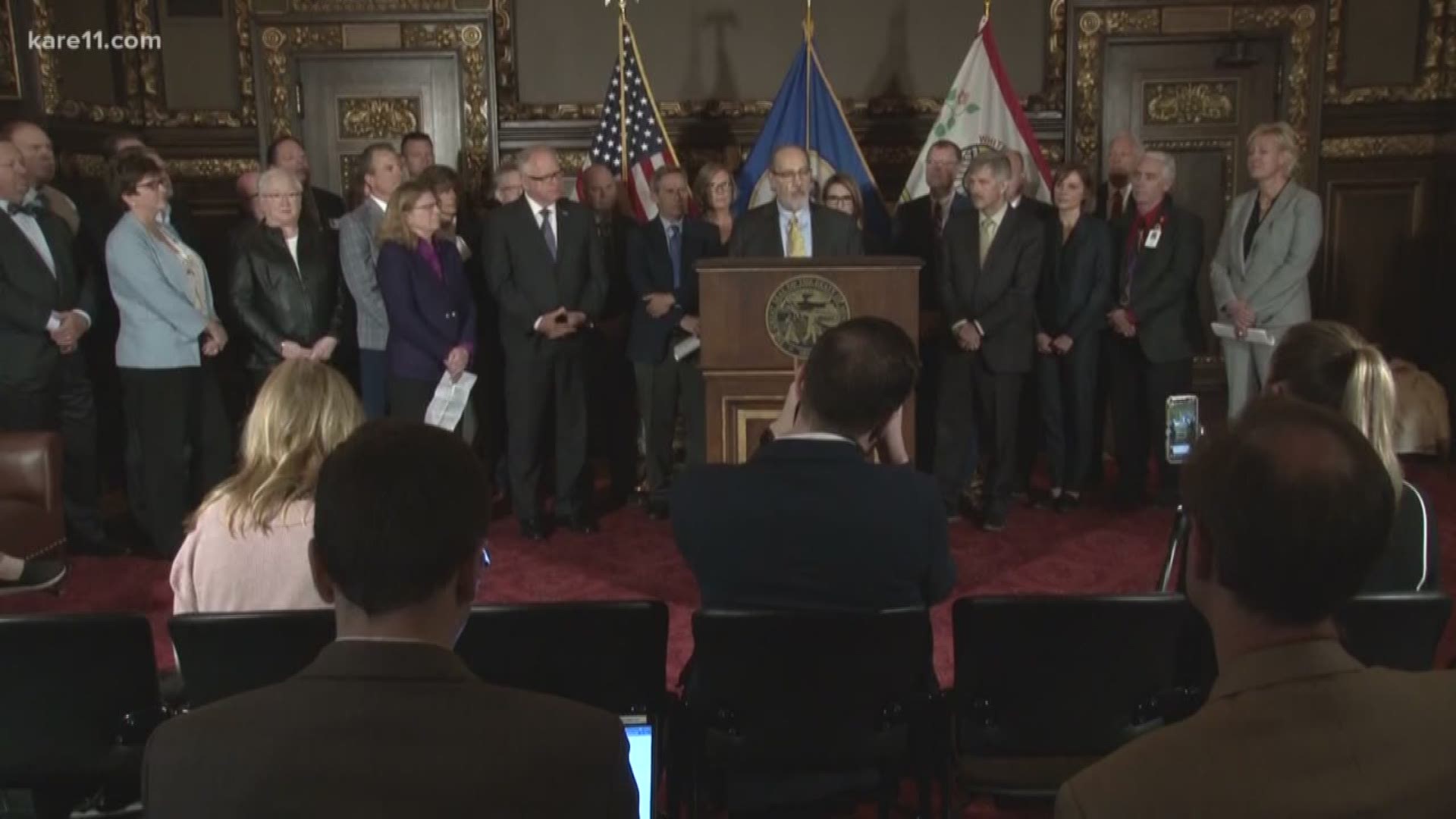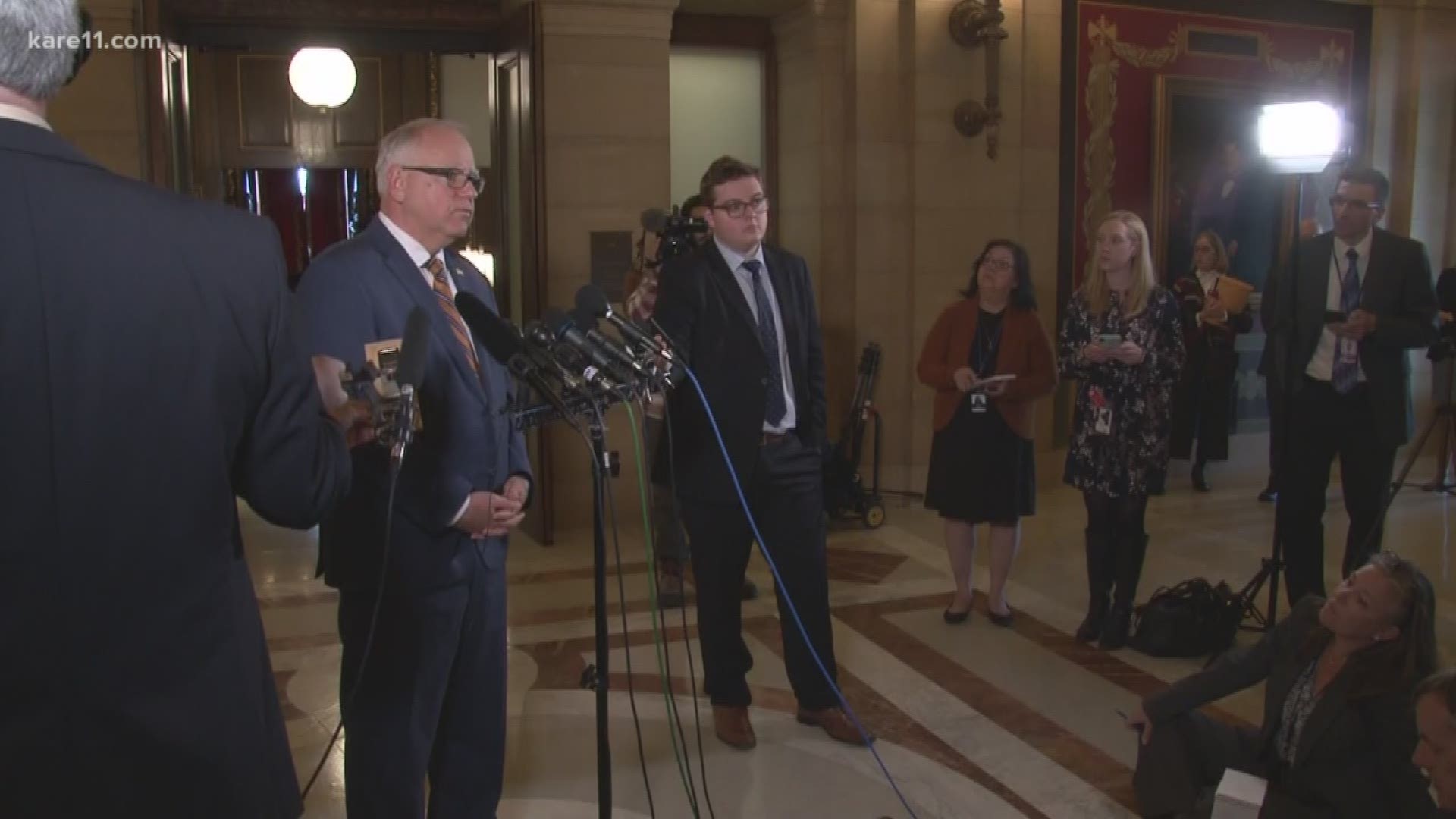ST PAUL, Minn. — High-level budget talks hit a rocky patch Tuesday at the State Capitol and won't start again until Sunday night at the earlier. That will delay any agreement on overall spending targets until after the Fishing Opener and Mother's Day.
One major sticking point remains the two percent tax on medical providers, which has been on the books for 27 years. It was created to supply money to the Health Access Fund, which helps pay the costs of health care for lower income Minnesotans enrolled in the Minnesota Care health plan.
A budget deal passed in 2011 calls for the provider tax to expire at the end of this year, and Democrats have made it a priority to extend the life of the tax.
Jennifer Jacquot-DeVries was among consumers who made the rounds at the Capitol Tuesday, looking to talk to lawmakers about saving the provider tax. The young mother from Brainerd is a self-employed grant writer for nonprofits who is enrolled in Minnesota Care.
"My husband and I are both self-employed, and so at the moment, as I get my small business off the ground, we qualify for Minnesota Care."
A congenital kidney disease has left Jacquot-DeVries with only 18 percent of normal adult kidney function. Doctors have told her she'll need a kidney transplant within the next two years, so she's worried about losing Minnesota Care if funding is cut back.
"Thankfully I’ve identified a donor, but that surgery costs about $200,000 roughly, so the future of my health care is something that means a lot to me," Jacquot-DeVries told KARE.
"It’s a lot of stress and I don’t feel people managing chronic issues, and managing their families, and managing small businesses should have to deal with this level of stress."
Leaders of Minnesota's hospital groups favor keeping the tax, even though they weren't happy with it originally. They say it's vital to managing the cost of treating lower income patients in both rural and urban settings.
Republicans say the tax is no longer needed because the Affordable Care Act freed up federal money to replace those dollars. But Human Services Commissioner Tony Lourey has told reporters if the provider tax goes away it will leave a $1 billion hole in his department's budget.
He also said $1 billion in federal aid linked to the Minnesota's state programs could also be in jeopardy if the Health Care Access Fund ends.
Budget talks hit rough patch
DFL Gov. Tim Walz spent part of the day in closed-door negotiations with House DFL leaders and Senate Republican leaders, before emerging to announce the five-day cooling off period.
He said he had offered to drop his spending proposal by $200 million, but the GOP delegation still hadn't been willing to move upward from their original spending target.
"I’m willing to work with them, I’m waiting to hear it, but I’m waiting for that real offer. When we get it, we’ll come right back at it," the governor told reporters.
Senate Majority Leader Paul Gazelka said he's still waiting for House Democrats to give up on some of their proposed tax increases, including the a proposed 20-cent per gallon gas tax hike phased in over four years.
"We've counted $12 billion in new taxes over four years. We feel that is way, way high as far as tax increases on Minnesotans," Sen. Gazelka remarked.
"But that’s what we’re waiting for but we’re all going to take some time to decide what is the next best step."
House Democrats Monday night offered to lower their spending targets by $664 million, if the Senate would increase its targets by $332 million. House Speaker Melissa Hortman said it was implied they would raise less in tax dollars if they lowered their spending target.
Rep. Hortman was upset to hear Gazelka's description of her team's offer -- that Democrats hadn't moved "one cent" on taxes.
"What Senator Gazelka said is just patently untrue," Hortman said.
"This governor moved $200 million. We proposed to move 664 million, if the Senate made a substantial move, so to say we have not moved one cent is dishonest."
In the meantime, House/Senate conference committees will continue to work through the differences between their competing versions of ten finance bills that form the state budget.
Lawmakers have until May 20 to pass a balanced budget for the two-year period that begins July 1. If they miss that deadline they'll have to finish their work in a special session in order to avoid a partial state government shutdown.


